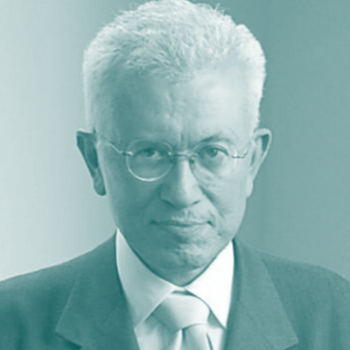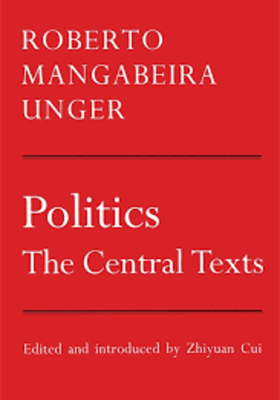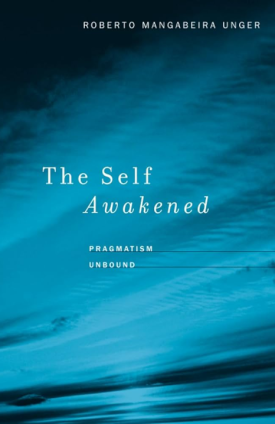Roberto Mangabeira Unger is a Brazilian philosopher, social theorist, and political thinker renowned for his bold critiques of conventional social, economic, and legal structures. He advocates for transformative, participatory approaches that empower individuals and communities to reshape society, emphasizing creativity, experimentation, and structural innovation. Unger’s work bridges philosophy and practical reform, offering a vision of a society where human potential is fully cultivated through collective and institutional flexibility.

Roberto Mangabeira Unger stands as one of the most visionary social theorists of the late twentieth and early twenty-first centuries. His central argument is that human beings live within structures that are artificial, contingent, and transformable – yet most societies accept them as unchangeable “necessities.” He names this illusion “false necessity” and insists that political, economic, and social institutions can be reshaped to unlock human potential and strengthen communal life.
For the Communitarian Union, Unger’s thought affirms that collaborative provisioning and shared responsibility for the life and liberty of people and animals, along with the preservation of the planet, are not utopian ideals but practical possibilities.
His insistence on institutional reinvention resonates directly with the Communitarian Union’s mission is to create frameworks of ‘sharing all with all,’ ensuring birth-right access to resources according to need to support a quality of life that dignifies the human experience, fosters resilient communities, enables active participation and skillful contribution, and builds living institutions where freedom, cooperation, and shared stewardship guide both communal and individual flourishing.
Core Principles Aligned with Communitarian Practice
Institutional Plasticity
- Unger challenges the idea that capitalism, private property, or representative democracy are inevitable. Instead, he emphasizes the plasticity of institutions: they can be reshaped to embody cooperation and belonging.
- This principle mirrors the Communitarian Union’s refusal to accept current economic arrangements as fixed and its commitment to building new modes of sharing economies.
Democratic Experimentalism
- Unger envisions democracy not as periodic voting, but as ongoing citizen participation in reimagining shared life.
- This parallels the Communitarian Union’s vision of local and regional communitarian unions collaborating as an evolving global network.
Empowered Individuals through Collaborative Unity
- Unger insists that individuals achieve self-realization only through communities that provide both care and challenge.
- For the global network of eco-social Communitarian Unions, this means individuals are nurtured through mutual belonging and shared responsibility, as opposed to competition or isolated achievement, which too often fosters selfishness, superficial glamour, and personal gain at the expense of community wellbeing, erodes trust, disconnects people from each other and the natural systems that sustain life, produces waste, and undermines both cooperation and environmental stewardship.
Radical Alternatives to Market Orthodoxy
- In works such as Democracy Realized and The Left Alternative, Unger sketches practical reforms: decentralizing economies, rethinking property relations, and embedding cooperation in market structures.
- This aligns with the Communitarian Union’s aim to redirect wealth creation toward collaborative, need-based provisioning rather than supporting accumulation, which too often concentrates resources in the hands of a few, fuels competition and social division, glorifies excess and personal prestige, and places undue strain on ecological systems. Instead, the Union envisions a framework where wealth circulates to meet collective needs, strengthen resilient communities, and sustain the institutions and shared resources that enable both communal and individual flourishing.
In this three-volume work, Unger challenges the idea that social structures and institutions are fixed necessities. He advances “empowered democracy,” a vision of political, economic, and cultural arrangements designed to expand human freedom, creativity, and solidarity.
Practical Application
Shared Economic Life
Unger’s call to restructure markets affirms the Communitarian Union’s conviction that prosperity must be created and sustained in common rather than concentrated in the hands of a few who exploit people, animals and planet to feed greed and lust for power and privilege. By challenging economic systems that primarily serve those devoid of a developed moral or social conscience, he reinforces the communitarian union’s mission to create and demonstrate share economies where material abundance flows into the commons to strengthen the foundations of shared life, liberty and happiness for all.
For communitarians, creating eco-social systems that ensure material security is not an end in itself; it is a cooperative practice that sustains collaborative communal unions, enabling communities to share resources, provide reliable healthful food, secure housing, healthcare, and education that supports vocational training, local projects, and collective problem-solving – practices that ripple outward to strengthen to the wider world to secure these conditions that provide the foundations for everyone to thrive.
This commitment means designing institutions where resources are distributed according to need, ensuring that all can participate in and benefit from the collective achievements of society. Our economic life is strongest when prosperity is understood as a shared accomplishment that is rooted in reciprocity, cooperation, and resilience, rather than a private possession.
Through cooperative enterprises, collaborative provisioning, and the expansion of the commons, we seek to create markets that foster solidarity, extend material and social security to allow every community across the globe to flourish together.
Civic Belonging
Unger’s vision of competency-based collaborative governance affirms that genuine freedom emerges through active participation in our shared institutions. This entails not only participatory self-governance, where every member contributes skillfully to communal life, but also communal stewardship, in which shared responsibility and competency guide our collective choices. Unger’s vision of deepened collaborative governance affirms that genuine freedom emerges through active participation in our shared institutions. It embraces embedded participatory governance, where members are actively engaged in shaping decisions and sustaining communal life, fostering mutual authority and accountability.
It further incorporates federated participation, as exemplified in Elinor Ostrom’s Governing the Commons (1990), connecting communities across multiple levels to ensure that diverse voices, competencies, and local knowledge collectively guide outcomes. In this way, empowered community governance nurtures the capacity of all to sustain and evolve the institutions that support us, creating a living framework of freedom rooted in shared responsibility, skillful contribution, and cooperative stewardship rather than mere majority rule.
Ultimately, empowered community governance nurtures the capacity of all to uphold and evolve the institutions that sustain us, creating a living framework of freedom rooted in collective competence rather than mere majority rule. He reminds us that communities flourish when every voice can shape the direction of collective life, not just through formal politics but through daily practices of collaboration.
Within Communitarian Union circles, this principle translates into decision-making that is participatory at every level, ensuring that household, neighborhoods, and regions can directly shape the arrangements that govern them.
Civic belonging is cultivated when structures are designed for inclusion, reciprocity, and mutual accountability, making social, economic and ecological governance a lived experience of care and cooperation rather than a distant mechanism of representation.
Educational Transformation
Unger calls for an education that goes beyond rote learning and narrow technical skill, urging us instead to develop imagination, adaptability, and collective creativity. This perspective aligns with the Communitarian Union’s commitment to nurturing social-emotional capacity, cultivating resilience, and enabling every person to make a vocational contribution to the well-being of their community.
Communitarians view education as a lifelong communal practice where individuals grow not in isolation but in relationship, learning how to collaborate, problem-solve, and innovate for shared prosperity. In this sense, educational transformation is both the seed and the harvest of a more cooperative society – equipping people to become agents of renewal within their communal associations, workplaces, and communal networks.
Global Solidarity
While grounded in local empowerment, Unger’s thought extends naturally toward a planetary ethic of cooperation. He shows that communities need not be bound by parochial interests. Instead, those with well-developed eco-social ethics and practical capacity to participate in “change” can link together in networks of mutual support and creative exchange. For the Communitarian Union, this mirrors our goal of building a global network of local and regional communal unions: rooted in place, yet interwoven across borders.
Such solidarity is not abstract but practical – sharing resources, knowledge, and direct physical participation in “boots on the ground” social and environmental restoration and development projects, confront the ecological and social challenges that no competitive, separatist society can solve alone. In this way, Unger’s vision supports communitarian-principled and eco-socially aligned collaborative associates’ conviction that global cooperation must arise from empowered localities, creating a web of belonging that strengthens both the parts and the whole.
Key Works
- Knowledge and Politics (1975) – In this early work, Unger challenges the prevailing liberal orthodoxy, arguing that social and political structures are not inevitable or naturally given. He emphasizes the interplay between knowledge and power, highlighting how ideas and institutions mutually shape one another. The book lays the groundwork for his later advocacy of transformative social and political experimentation.
Politics: A Work in Constructive Social Theory (1987) – This three-volume work forms Unger’s most ambitious attempt to remake social theory. Across its parts (Social Theory: Its Situation and Its Task, False Necessity, and Plasticity into Power), Unger dismantles deterministic accounts of institutions and historical development, showing that societies are far more open to reinvention than conventional theories allow. He calls for new institutional arrangements that expand our capacity for collective creativity, freedom, and solidarity.
Plasticity into Power: Comparative-Historical Studies on the Institutional Conditions of Economic and Military Success (1987) – In this third volume of his Politics series, Unger examines the relationship between institutional flexibility and a society’s capacity for innovation and resilience. Through historical case studies, he argues that societies thrive when they cultivate adaptable institutions that can respond to changing circumstances. The book explores how certain practices and institutional arrangements have enabled societies to harness their potential for both economic and military success, emphasizing the importance of institutional plasticity in achieving sustained progress.
- False Necessity: Anti-Necessitarian Social Theory in the Service of Radical Democracy (1987) – This foundational text dismantles the notion that social, economic, and political institutions are fixed or inevitable. Unger introduces the concept of “anti-necessitarian” social theory, arguing that human societies can and should actively reshape their structures to expand freedom and opportunity. The work serves as a manifesto urges bold, imaginative reforms grounded in collective participation and empowerment to govern resources that support the life and liberty of all.
The Self Awakened: Pragmatism Unbound (2007) – In this philosophical culmination of his thinking, Unger explores the human capacity to transcend social, cultural, and psychological constraints. He presents individuals as context-transcending agents, capable of reshaping not only their own lives but also the institutions and structures around them. Unger critiques fixed notions of human nature and “perennial philosophies,” advocating instead for a life of engagement, experimentation, and moral responsibility. Central to the work is his concept of radicalized pragmatism, which emphasizes risk, creativity, and transformative action as essential to both personal fulfillment and social renewal. The text bridges his social and political theory with a profound ethical vision, offering readers a guide for cultivating agency, cultivating change, and realizing a more dynamic, participatory society.
- The Left Alternative (2009) – In this later work, Unger offers a renewed vision for progressive politics, emphasizing solidarity, empowerment, and institutional flexibility. He critiques both traditional leftist approaches and neoliberal orthodoxy, proposing a reinvigorated agenda for social transformation that prioritizes human creativity and collective self-determination. The text serves as a guide for rethinking the possibilities of progressive governance in a rapidly changing world.
A call to renew pragmatism as a philosophy of transformation and collective empowerment
Unger reclaims pragmatism from narrow, instrumental interpretations, presenting it instead as a radical philosophy of human potential. He argues for a life of experimentation and shared creativity, where individuals and communities continually reshape their world to deepen freedom and solidarity.
Toward a Network of Principled Cooperative Societies
Imagination, Solidarity, and the Work of Renewal
Roberto Mangabeira Unger’s philosophy is more than a critique of existing institutions – it is an invitation to act together in shaping new forms of communal life. By uncovering the illusion of false necessity, Unger shows us that society is not bound by rigid traditions or fixed hierarchies. He shows us that it is instead very much open to creative reinvention.
This understanding aligns with the Communitarian Union’s commitment to building networks of cooperation where sharing replaces scarcity, belonging overcomes exclusion, and resources are distributed in alignment with human need rather than privilege.
For those aligned with Communitarian principles and practices, Unger’s radical re-imagining of institutional ethics, designs and functional deliveries, affirms that freedom is a shared achievement, realized and sustained through collective structures that foster security, creativity, and solidarity. He reminds us that our task is not to preserve the status quo; it is to continually evolve our economic, political, and social systems so that life is sustained, essential needs like housing, food, preventative optimal health support, and life-long whole-person educational develop opportunities are secured, and everyone can actively participate in shaping and advancing the communities they inhabit.
In this way, Unger stands as a foundational voice for our movement, illuminating the path toward a world where communities consciously choose cooperation, cultivate resilience, and reinvent themselves to meet the challenges of tomorrow.


